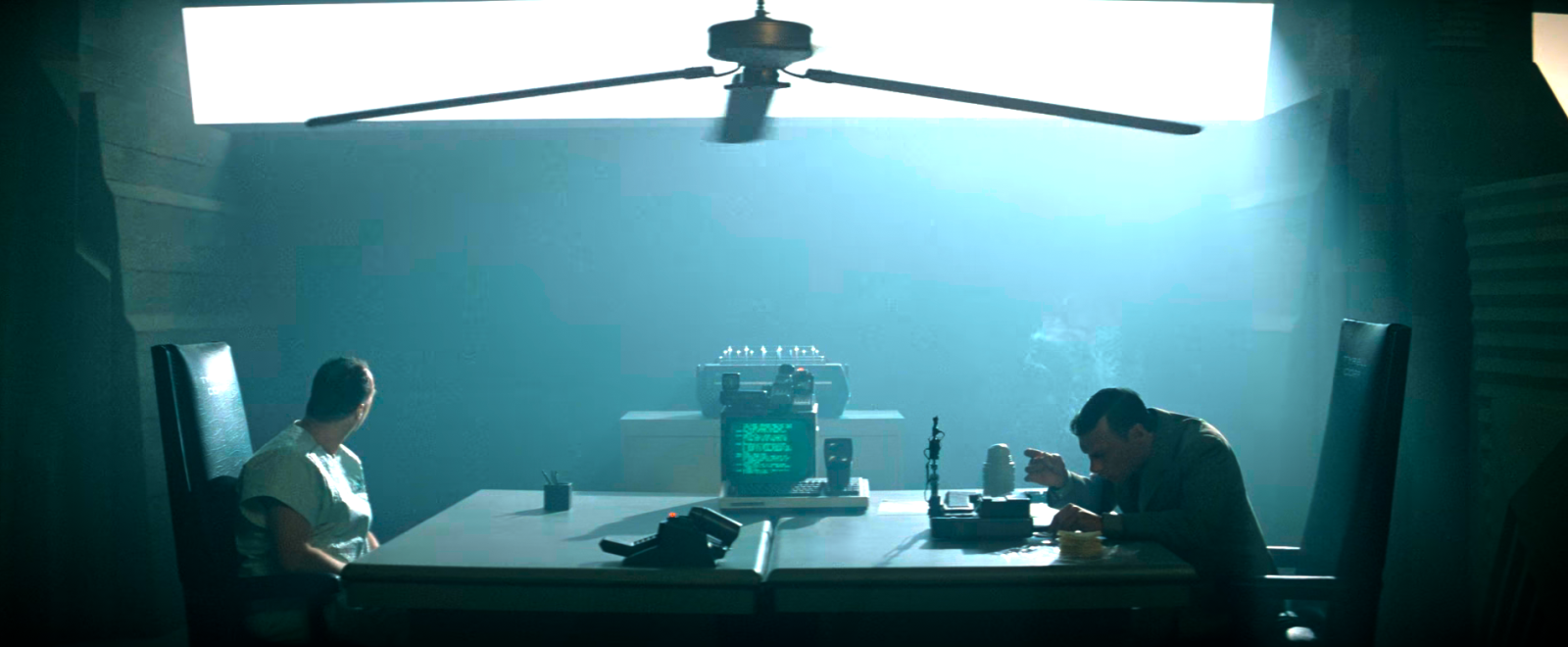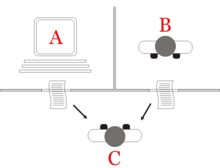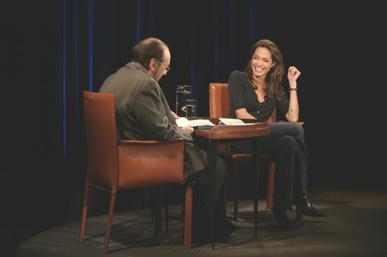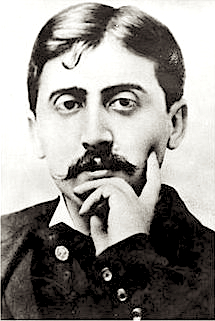The Proust Questionnaire
by Karen Fang
Today, we go from Turing to Proust. The University of Houston presents this series about the machines that make our civilization run, and the people whose ingenuity created them.
The opening scene of the sci-fi film Blade Runner begins with a series of questions. "You're in a desert, walking along in the sand, when all of a sudden you look down and you see a tortoise...on its back... you're not helping him...why is that, Leon?" "Describe, in single words, only the good things that come to your into mind about your mother." As the questions mount the interviewee grows uneasy, and eventually exposes himself as a machine only pretending to be human. In this movie about sophisticated androids passing as human, psychology tests designed to "provoke an emotional response" are key to figuring out who is human and what is not. When robots can look and move exactly like us, the only thing that makes us human is the emotional circuitry that signals interiority.

Screenshot from Blade Runner's opening scene (Shaw Bros/Warner Bros, 1982). See the full clip here.
Blade Runner may be fiction, but the idea of gauging artificial intelligence through a series of questions was pioneered by Alan Turing, a brilliant mathematician who had been part of the codebreaking efforts during World War II. After the war, Turing wrote an influential paper which proposed that as machines and computers become more advanced, AI should be measured by how well it simulates human interaction. To test machine learning, Turing wrote, let's imagine a scenario in which a human and computer are both fed the same questions. If someone comparing their printed responses can't tell the difference between machine and human, the machine has succeeded at appearing to think.

Turing test diagram. Courtesy Wikipedia
Turing's great insight in developing this standard for artificial intelligence was to ignore the actual answers, to focus instead on idiosyncrasy, or the feelings and thoughts of personal experience. This is the issue at stake in Blade Runner, but while the film would have us believe that frontier is in the future, the idea of using a question series as a means of gauging emotional depth has been around at least since the 1890s, when French memoirist Marcel Proust recorded his answers to a series of conversation openers. The questions--which include topics like "your favorite virtue," "your main fault," "your idea of happiness" and "your idea of misery" were a common form of polite entertainment--and are an important precedent to Proust's magnum opus, À la Recherche du Temps Perdu. Now known as the "Proust Questionnaire," such questions explore the feelings and interests that distinguish individuality. They provoke the same introspection that Proust describes in a famous passage on the memories evoked by the aroma of freshly baked madeleine biscuits. The questions also survive today in the interview topics lobbed at celebrities and on social media as a way of promoting human connection.

James Lipton, host of the long-running television series, Inside the Actors Studio, in which Lipton often used portions of the Proust Questionnaire to spark conversation. Courtesy Wikipedia.
Much anxiety regarding artificial intelligence--and in science fiction more broadly--stems from our fears of obsolescence and disempowerment. By inventing things to make life better, have we engineered our own redundancy? Blade Runner makes the Turing test look like a defensive weapon, the mirror that--in a different film genre--we hold up to a vampire to expose its inhumanity. But I prefer to think of AI--and the Turing test's precedents in the Proust questionnaire--as a bridge to the depth and variety of individuality. Like Proust's famous madeleines, AI reminds us of the ineffable attributes that make us human.

Portrait of Marcel Proust. (Photograph by Otto Wegener, 1900.) Courtesy Wikipedia.
I'm Karen Fang, at the University of Houston, where we're interested in the way inventive minds work.
Andrew Hodges, Alan Turing: The Enigma. Random House, 2012.
Evan Kindley, "How the Proust Questionnaire Went from Literary Curio to Prestige Personality Quiz." New Yorker, July 7, 2016.
Jonathan Lehrer, Proust was a Neuroscientist. Mariner Books, 2008
"The Turing Test," Stanford Encyclopedia of Philosophy
This episode was first aired on January 26, 2021